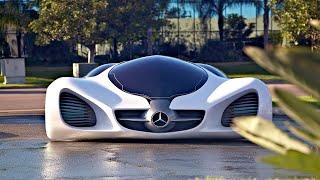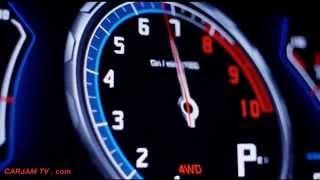The compact footprint is almost identical at 4.37m, yet built on Land Rover's new Premium Transverse Architecture, there is more interior space than before. A longer wheelbase yields 20mm extra rear kneeroom and an increase in small item stowage - the larger glove box and centre cubby can now fit tablets, handbags and bottles with ease. The luggage space is 10 per cent larger (591 litres) as well as much wider and easily fits a folded pram or set of golf clubs, with space increasing to 1,383 litres when the flexible 40:20:40 second-row seats are folded.
The new architecture has been developed for electrification, with a 48-volt mild-hybrid available at launch and a plug-in hybrid model offered around 12 months afterwards. The mild hybrid powertrain is a first for Land Rover and works by harvesting energy normally lost during deceleration thanks to the engine-mounted belt-integrated starter generator, storing it in the under-floor battery. At speeds below 17km/h (11mph), the engine will shut off while the driver applies the brakes. When pulling away, the stored energy is redeployed to assist the engine under acceleration and reduce fuel consumption. The result is a refined, quiet and efficient drive in built-up traffic heavy areas, in addition to efficiency savings.
The new architecture has been developed for electrification, with a 48-volt mild-hybrid available at launch and a plug-in hybrid model offered around 12 months afterwards. The mild hybrid powertrain is a first for Land Rover and works by harvesting energy normally lost during deceleration thanks to the engine-mounted belt-integrated starter generator, storing it in the under-floor battery. At speeds below 17km/h (11mph), the engine will shut off while the driver applies the brakes. When pulling away, the stored energy is redeployed to assist the engine under acceleration and reduce fuel consumption. The result is a refined, quiet and efficient drive in built-up traffic heavy areas, in addition to efficiency savings.












Comments